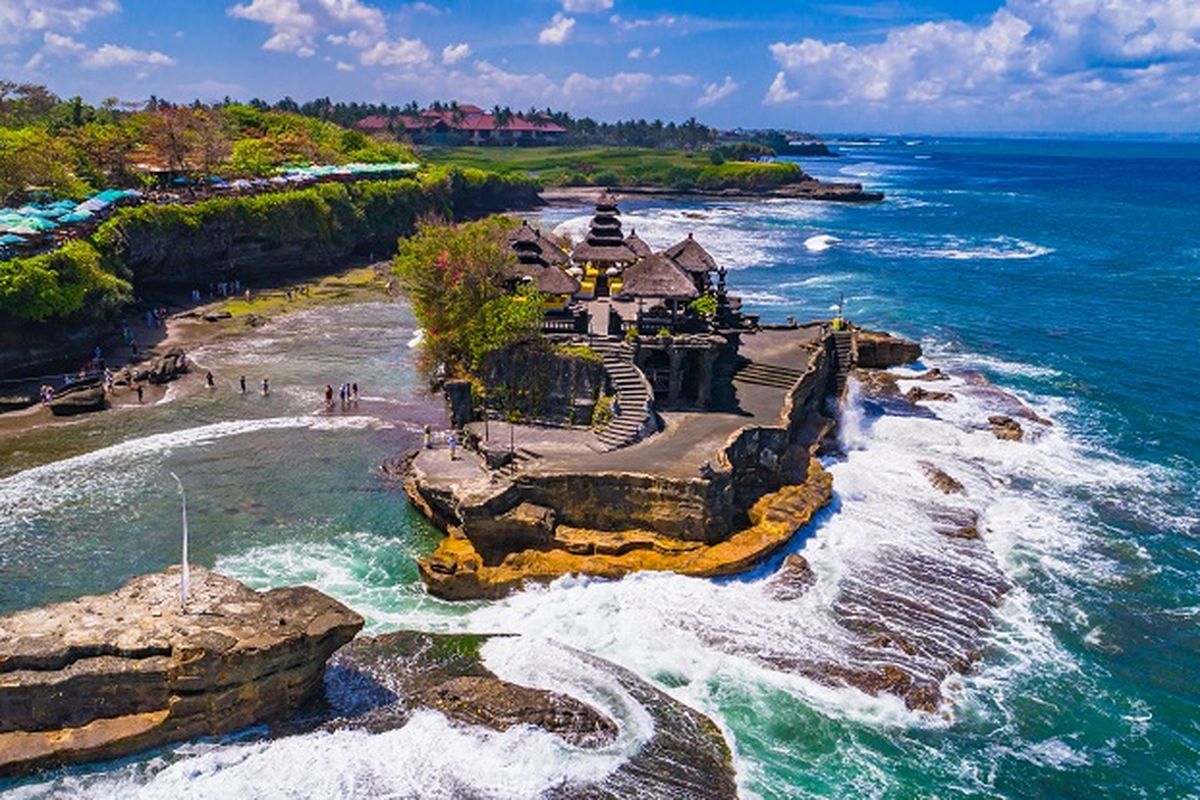“Work from Bali” to Save Tourism Sector: Indonesian Minister

KOMPAS.com - Minister of Tourism and Creative Economy Sandiaga Uno said the government-led Work from Bali (WFB) initiative is expected to be the main driver to boost the tourism sector in the Indonesian resort island which has been hit hard by the Covid-19 pandemic.
WFB will involve the state civil apparatus (ASN) under the purview of the Coordinating Ministry for Maritime and Investment Affairs, which oversees seven ministries, including the Ministry of Tourism and Creative Economy.
In this program, 25 percent of state civil apparatus will participate in the program, which is currently being finalized by the Coordinating Ministry for Maritime and Investment Affairs.
Sandiaga explained that the arrival of domestic tourists to Bali had dropped significantly over the last two weeks due to the ban on homecoming during the Eid al-Fitr holidays. However, as of Monday, May 24, the number of visitors to Bali has returned to 5,000-6,000 people a day.
Also read: Bali Named Among Worlds 15 Best Islands for Retirement on Travel Awaits 2021
"The room occupancy rate for star hotels reaches below 10 percent and that is 8.99 percent to be exact, while [the occupancy rate] for non-star hotels is even lower at 7.7 percent," Sandiaga said during a Weekly Briefing, Monday, May 24 at the ministry's building in Central Jakarta.
He continued that the average length of stay in February 2021 for star hotels was 2.67 days and for non-star hotels was 1.89 days.
"With our presence in Bali, we hope that the occupancy rate will increase as it is supported by other players, not only from hotels and restaurants but also from creative economy products,” said Sandiaga.
He added the realization of the government spending will be monitored so that there would not be dissipated.
Previously, Coordinating Maritime Affairs and Investment Ministry undersecretary, Odo Manuhutu, explained hotels in Bali have difficulty paying the salaries of their employees and hotel maintenance. He said that to pay for the maintenance costs, the occupancy rate must reach at least 30-40 percent.
"Bali has 140,000 hotel rooms. Imagine when only 10 percent of the 140,000 rooms are being occupied. It means that many employees in Bali do not work for 10-14 months," Odo told a virtual press conference, Saturday, May 22.
Before the Covid-19 pandemic, the arrival of foreign tourists contributed to 55 percent of foreign exchange and tourism income.
"If we can replace 75 percent foreign tourists with domestic tourists, with a rising quality level of shopping and the length of stay, we hope Bali can have positive economic growth at the end of Q3 and Q4 this year," Sandiaga said.
Also read: Bali Mull Covid-19 Jab Drive for Travelers to Revive Tourism
Head of Bank Indonesia Representative in Bali, Trisno Nugroho, said that during the Covid-19 pandemic Bali has been severely affected because 52-56 percent of its economy depends on the tourism sector.
"Out of 34 provinces in Indonesia, Bali’s economy in 2020 was the most depressed. In 2020, when all provinces had positive economic growth, Bali was still negative. In the first to fourth quarters, Bali's economy contracted 12 percent," said Trisno.
Besides promoting Bali tourism, WFB can also support a digital nomad or someone who works regardless of time and place.
"We hope it will be able to encourage our readiness for digital nomads and also to embrace YouTubers and celebrities who are already in the legal corridor of implementing digital nomads,” Sandiaga said.
(Writer: Ni Nyoman Wira Widyanti, Desy Kristi Yanti | Editor : Anggara Wikan Prasetya)
Simak breaking news dan berita pilihan kami langsung di ponselmu. Pilih saluran andalanmu akses berita Kompas.com WhatsApp Channel : https://www.whatsapp.com/channel/0029VaFPbedBPzjZrk13HO3D. Pastikan kamu sudah install aplikasi WhatsApp ya.






























